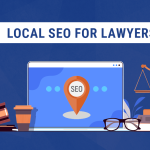Successful SEO strategies carried out by the best SEO company in Sri Lanka,![]() take into consideration a variety of factors to ensure that the content on their site ranks highly in search engine results pages (SERPs). These include having high-quality content and relevant keywords placed strategically throughout the website or blog posts, building links from other credible sites with similar topics, as well as optimizing an internet marketing strategy for specific demographic groups who are likely to be searching Google for products or services like those being offered by the business. The goal of these campaigns is to increase visibility both locally and globally so potential customers can find them when they’re looking online.
take into consideration a variety of factors to ensure that the content on their site ranks highly in search engine results pages (SERPs). These include having high-quality content and relevant keywords placed strategically throughout the website or blog posts, building links from other credible sites with similar topics, as well as optimizing an internet marketing strategy for specific demographic groups who are likely to be searching Google for products or services like those being offered by the business. The goal of these campaigns is to increase visibility both locally and globally so potential customers can find them when they’re looking online.
Here are some tips on how to create a successful strategy for SEO in Sri Lanka.
1.Define your target audience
A target audience is a specific group of people that you are targeting your content to. The goal is to write for the reader, not yourself. Understand who you want your content to be read by and what they need from it; their objectives will dictate which keywords should go into those places in the article.
For example: if we’re writing an e-book on how to get better sleep every night, our readers might benefit from knowing where to find information about methods for dealing with stress at work or related topics like allergies as these can cause insomnia symptoms. So even though we don’t have any plans for this right now, we’ll still include some text talking about these other things in case someone searching Google decides that’s something important could be found in this article.
2.Research keywords and phrases that are relevant to your business
Keyword research is one of the most important parts of SEO services in Sri Lanka and elsewhere. It is what will make your website rank higher in search engines for certain terms and phrases that people are searching on Google, Yahoo!, or Bing.
When you do keyword research, you want to find out which keywords and phrases have a lot of monthly searches but not too many competitors with high rankings first. Why? Because this is where there is potential for your site to rank highly without having to spend as much effort optimizing it, if those other websites don’t optimize their content correctly! The goal here is to get some great ranking opportunities while still writing engaging content with good links pointing back at it from other sources like social media sites like Twitter or Facebook. Once that happens, you will be able to rank high in search engine results pages for keywords that are more competitive.
This is a great way to get attention from potential customers while you work on your SEO strategy (which may also include other things like optimizing the coding of your website, or using social media sites as marketing channels). You can then move up the rankings into higher-competition keyword phrases and start tackling them with content specifically designed to rank well there, which takes more time but will have better rewards!
The benefits of these types of high-ranking websites go beyond just having an adored site by Google; they include increased trustworthiness, improved brand recognition, and greater conversion rates because people who see them often click through. All this adds up to higher sales conversions for any business.
3. Develop a content marketing strategy – write articles, blog posts, and other content for your website or blog
Content marketing is another way to get your name out there. In this process, you create informational content that is designed to generate interest in a product or service for marketing purposes. A lot of businesses and even non-profits use content marketing as an effective way to promote their products or services without the need for paid advertising campaigns.
4. Use social media to promote your company’s products or services
Social media can be a very powerful tool when it comes to marketing your company and its products. It allows you to connect with potential customers on a personal level, which is something that traditional advertising campaigns often struggle to do.
It creates greater engagement between the business and its customers, as they are able to communicate with one another on a more personal level. This makes your potential customers feel valued, and ultimately creates a stronger bond between them and the company itself.
Social media also allows you to build up trust in an efficient way that traditional marketing campaigns may not be as effective at doing. You can interact with people personally, which builds up their confidence in the products or services of your company before any purchase is made (and if things go wrong afterwards).
The key here is to keep it simple; don’t bombard social media accounts with ads for every single product available from your business. Instead try sharing posts about topics relevant to your industry, so that you give out informative content to your followers.
The Facebook algorithm favours posts with high engagement, so make sure that you are actively engaging with your audience and other businesses on the network. Try commenting on their business page or liking a post; these little things are often greatly appreciated by people who may be struggling to grow an organic following of their own.
When it comes down to it, what does successful SEO really mean? It means having a strategy in place that’s going to increase traffic not only for one website but also across multiple channels including social media sites like Facebook and Twitter as well as Google search engine results pages (SERPs). A company without this understanding will simply end up wasting time and money trying different techniques out rather than sticking with methods proven to bring in results.
5. Track the effectiveness of each SEO strategy by using Google Analytics to see how many visitors come to your site through search engines every day
Tracking and monitoring your SEO strategy is essential in order to know what you are attempting and how you’re progressing.
Google Analytics (GA) is a web analytics service offered by Google that tracks and reports website traffic, providing insights about the visitors’ experience on websites for marketing purposes. GA also provides social media features with real-time updates, data visualization, audience segmentation, video conferencing capabilities as well as conversion funnels so businesses can measure their campaign success.









